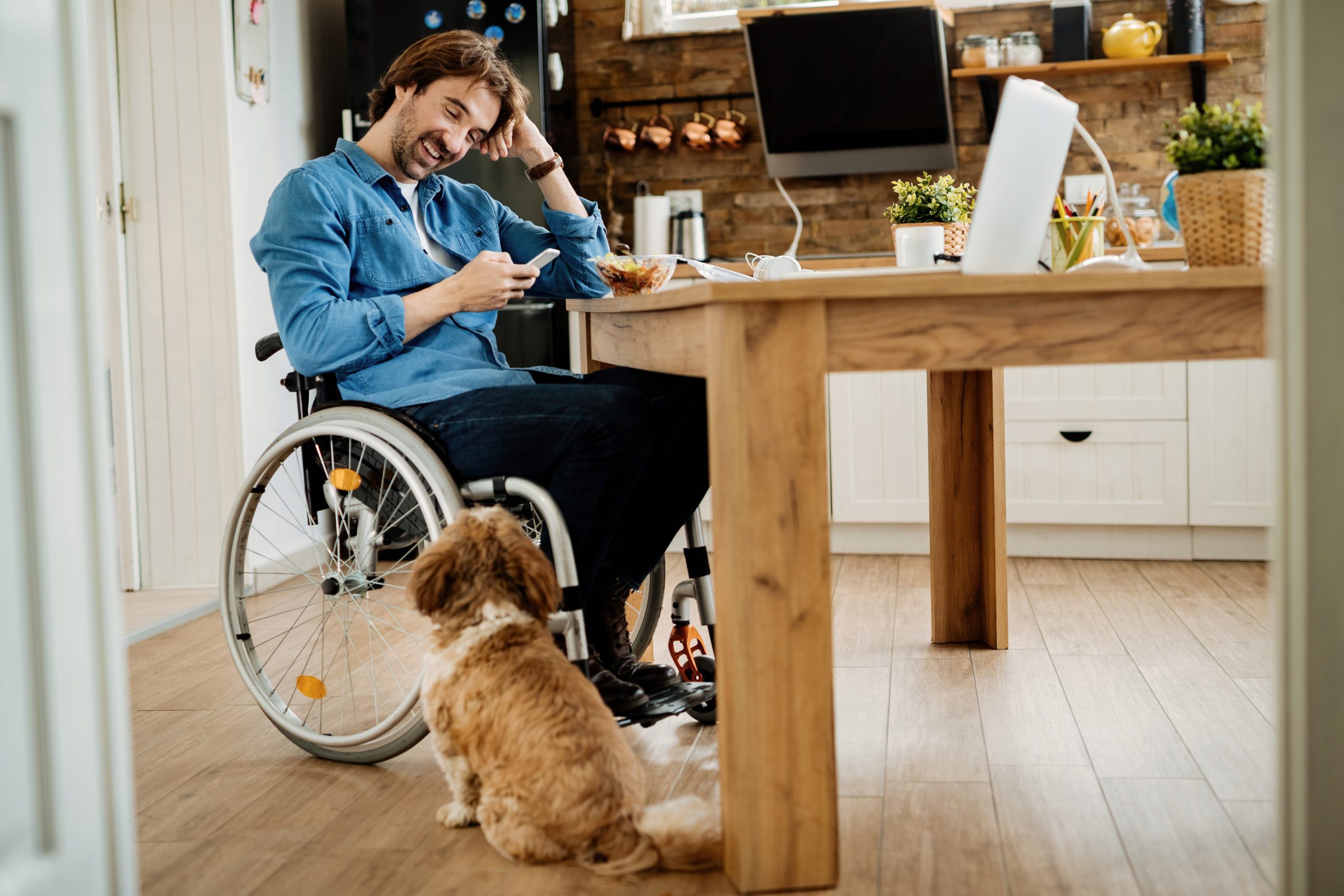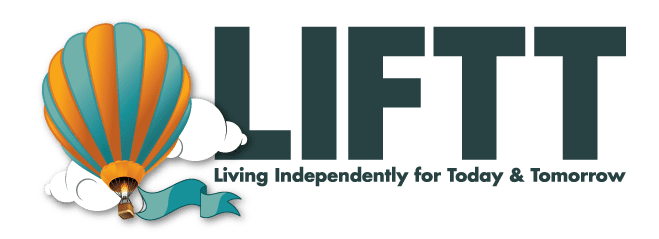Independent Living Skills
Living independently is more than just being able to live on your own. What about quality of life? LIFTT endeavors to provide its consumers with the right tools to achieve this by offering classes with curricula such as “Living Well in the Community” and “Working Well with a Disability,” along with more individualized instruction and advocacy.
There are many key things to consider when you are about to be on your own. LIFTT has identified key skills and knowledge that lead to successful transitions. They are basic financial literacy, basic health and nutrition, how to use public transportation, and how to advocate for oneself with family, social groups, school, employer, and government.

Workshop participants can:
- Identify what is meaningful to them and then set “quality of life” goals around ways they want to make their lives better.
- Working Well with a Disability (WWD) was designed in part again by Healthy Community Living (HCL) program. WWD is a program for people who want to develop a healthy lifestyle to help get and keep a job that meets their needs. Workshop participants can:
- Discover tools and that make goal achievement easier like communicating effectively and finding important resources.
- Explore ways to improve peer’s overall health by changing daily habits.
- Practice self-advocacy and systems advocacy to help them make changes that can support them and others in living well.
Working Well with a Disability (WWD) was designed in part again by Healthy Community Living (HCL) program. WWD is a program for people who want to develop a healthy lifestyle to help get and keep a job that meets their needs. Workshop participants can:
- Develop healthy habits to manage health conditions, have the energy to work, and meet other life objectives.
- Decide on goals and a plan to achieve them.
- Learn how to reduce chronic pain, fatigue, and depression that might slow progress.


Can IL Skills Training work for me?
We like sharing success stories! Craig C. entered LIFTT’s doors having spent most his life institutionalized and was trying to make the transition into society and living on his own. Not being socially integrated was also something he knew he needed to work on. His IL specialist Tanya enthusiastically took on the case and pointed out a few things. Knowing they had many hurdles ahead they immediately enrolled Craig in LWC and WWD with five other consumers. Craig opened himself up and started to have positive interactions with the fellow members talking about what they felt was quality life and how to pursue it, despite their disabilities. He eventually graduated from both programs. Several weeks later he was able to make his way out of his transition house, to living independently.
More Classes and Skills Training opportunities are available soon as we navigate our way through COVID. For more information on classes and IL Skills Training contact LIFTT at (406) 259-5181 or liftt.org/contact.

